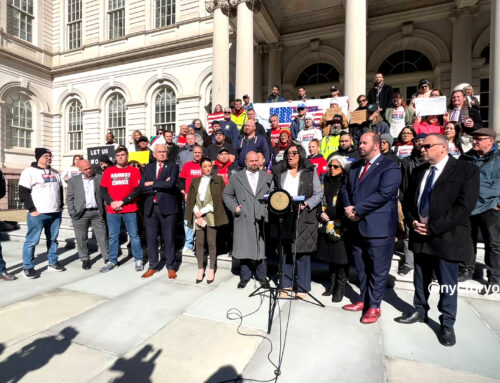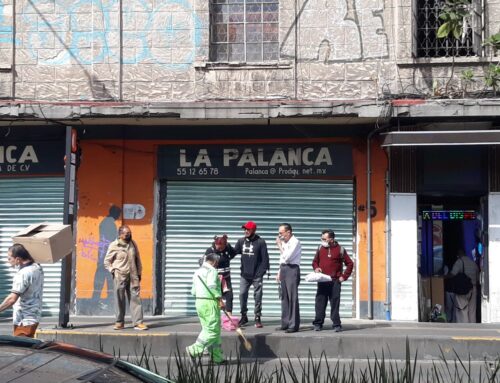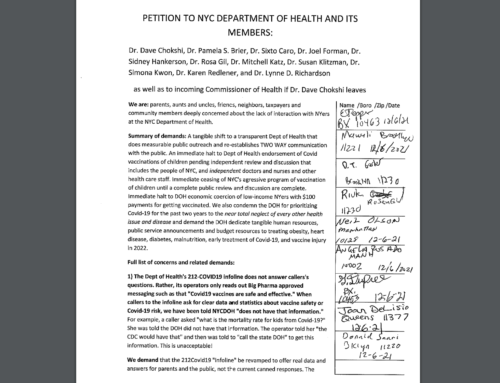Remember the children of America? It has been a while since anyone spoke about them. This includes the large pool of candidates for the next President of the United States. Year after year in the United States, children remain poor despite our evident unhappiness about it and the conviction that they do not deserve it.
We talk about educating poor children out of poverty, though it is difficult to learn when one is hungry, or homeless, or doesn’t have a proper coat to get to school, or when one’s parents are distraught over how to pay the rent.
We discuss giving children “opportunity.” With the current safety net, though, opportunity is no more than an invitation to remain hungry, homeless or ill clad until some years in the future the child will take advantage of some circumstance that may catapult him out of poverty and into the middle class, if he can survive that long.
We regularly admit that money is the solution to poverty when we have lengthy discussions about a living wage, though we have seen how insisting on the wage system is futile, for we can raise the wage today and tomorrow any given company will have announced a layoff of hundreds of Americans, as BAE Systems and ConocoPhillips did just this month.
This refusal to provide the obvious solution to poverty—income, regardless of whether a person has a “job”—is a stubborn position that shows just how successful the brainwashing around jobs and wages has been. We are all convinced that we can solve poverty by giving people something other than income. Most Americans believe that the U.S. already has a program that effectively feeds, houses and dresses low-income children, until years from now when they will finally escape poverty via the excellent “opportunities” they’ll be given.
All the evidence, however, shows otherwise.
Our national “welfare” system is called Temporary Assistance for Needy Families. Even the name of the program implies there is no long term aid for children who live in poor families. But there is more proof, which remains outside the media discussion, that the U.S. has no income safety net.
In 2013, the fifty states left unspent a combined $1.5 billion of the federal welfare block grants given to help their own low-income residents. Due to flaws in the design of the program (flaws to us, perhaps not to state legislators), their grants can be diverted to state uses other than the needs of low income Americans. States can build a shopping center, do research on the flights of migrant birds, or even use it for something for poor people that until now the state had always paid for itself.
Although every state reports having millions of residents below poverty, for years now, virtually every state has been okay with keeping a large portion of its federal welfare block grant. In 2013, New York State kept $104 million. Washington, D.C. kept $54 million. Utah kept $109 million. Utah kept twice as much of the grant as it spent.
New York City alone has tens of thousands of people in shelters. D.C. has homeless people and entire neighborhoods living with violence and poverty. 43 percent of Utah’s single parent families live below the poverty line. Yet none of these states could find something to spend the rest of their block grant on.
More evidence that our children have no real protection from poverty is that most states enroll only about one percent of their poorest residents in their welfare program. Wyoming for example, has 64,000 residents living below the poverty line, half of them children. It only has 700 of them enrolled in their welfare program. Georgia’s welfare program only has .4 percent of its families living in poverty enrolled—less than half of one percent.
The cash assistance portion of every state’s welfare program is pegged at less than 50 percent of a poverty line income. Pegging cash assistance at anything less than the federal poverty line is to knowingly condemn the children of your constituents to malnutrition, substandard housing, and stress.
Consider a child in Georgia today. He lives with his mother and a sister. Georgia’s cash assistance to a family of three is $280 per month. That’s 18 percent of the federal poverty line. His mother gets Food Stamps, too, which raises the family’s income up to $764 per month. They have no guarantee of housing, and his mother is required to leave them at a babysitter so she can “work” for the $280.
It can hardly surprise anyone that from New York City to North Carolina and elsewhere, child labor is back. The children, faced with the reality that there is no U.S safety net, go to the New York City subways to sell candy. They pick tobacco in North Carolina, while these states and others sit on the million dollar block grants that were supposed to help their families. Child laborers used to conjure up only images of children in third world nations.
A different system: Universal Basic Income
A basic income would provide a fixed monthly income to every American, with no work requirement and no demeaning and frustrating means testing. The delivery would be direct to the person and would not require a person to prove anything, for all would receive the same as a safety net income beneath which no individual would fall.
First, basic income would eliminate the current problem of state level welfare fraud, where states accept the federal welfare block grants but then divert them to other uses instead of alleviating poverty. The billions of dollars per year that are spent in the Temporary Assistance to Needy Families program, and the billions left unspent, could be used to greater effect as a basic income.
Second, since poverty is a lack of money, the solution to poverty is to distribute money. And this is where Americans hit a wall, because the prevailing voices say that we cannot distribute money in any other way than the ways we are doing it now—mainly through wages, occasionally through “welfare programs.” This gets us all tripped up and perpetuates the poverty because we try to eliminate poverty by working on something else—education, or housing, or giving away food (instead of the means to purchase these things).
The great political scientist and activist Rev. Martin Luther King, Jr. said, “…We are likely to find that the problem of housing, and education, instead of preceding the elimination of poverty, will themselves be affected if poverty is first abolished.” This is a simple truth that, if we used it to guide our economic policy, would naturally lead us to distribute income directly to people. It is simply the most logical approach.
Third, basic income acknowledges that all children deserve to have their poverty end immediately, not in five years or ten years or when they are old enough to hold waged work. It acknowledges that there is psychological and social harm to children in the current approach.
Fourth, basic income treats children and adults with dignity. It recognizes that there are many adults who are working; they are just not getting paid, because they are caregivers to their own children or to an adult in need. About 45 million Americans report taking care of an ill or aging spouse or other adult at least 20 hours per week. The suggestion that all that these caregivers need is a “job” when they are already working is not a sensible policy solution and devalues the importance of their care of their own children and family.
In a world where so many adults—including fathers—wish they could afford to care for their own children, a basic income would create the option for a parent to be the primary caregiver to his or her own children full time or just to be there more often. As the numbers of children on anti-anxiety and anti-depressant medications rise, as the numbers of children with chronic illnesses and academic problems increase nationwide, an experiment with basic income would be a wise gamble that saves the children of America from the path they have been put on.
For the sake of our children, I urge everyone to sign the petition at www.basicincomeaction.org and tell the presidential candidates to ensure economic security for every family by supporting a basic income.





Leave A Comment